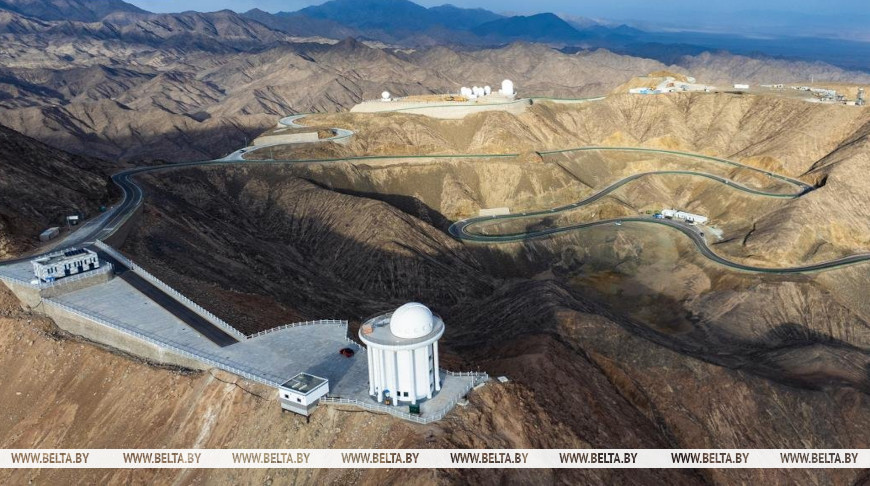Nepal Gen Z Protests: China hopes that people from all circles of Nepali society will “properly handle” the country’s domestic issues and restore social order and national stability as soon as possible, a spokesperson at the Chinese foreign ministry was quoted by news agency Reuters as saying on Wednesday, 10 September.
“It is hoped that all sectors of Nepal can properly handle domestic issues and quickly restore social order and national stability. China has already reminded its citizens in Nepal to pay close attention to safety,” foreign ministry spokesman Lin Jian told a regular press briefing.
This is perhaps the first official statement from China on Nepal, where violent demonstrations on Tuesday forced Prime Minister Khadga Prasad Oli to step down after a short-lived ban on social media.
China also urged its citizens in Nepal to “pay close attention to safety”, after protesters set parliament ablaze and forced the prime minister to quit in the worst violence to hit the Himalayan nation in two decades.
Protestors also set government buildings and politicians’ homes on fire. Amid widespread criticism of the country’s political elite and over alleged corruption, the Army took charge of the security operations in the country on 9 September at 10 PM.
China hopes that people from all circles of Nepali society will ‘properly handle’ the country’s domestic issues.
At least 19 people died and 500 others were injured in clashes around the Federal Parliament and other parts of Kathmandu.
Air India, SpiceJet and IndiGo are among the airlines that cancelled their flights connecting Kathmandu. In the wake of Nepal unrest, the Ministry of External Affairs (MEA) issued a travel advisory for Indian citizens on Wednesday. It not only shared emergency contact numbers but also urged those already in the country to remain indoors.
Why are protests happening in Nepal?
The protesters, who were grouped under the banner of Gen Z, were triggered by the government’s decision to ban 26 social media sites. Apps like Facebook, Instagram, and WhatsApp, among others, were blocked in Nepal on Friday after the government cut access to these platforms.
But eventually, turns out the uprising was more about ‘corrupt’ governance than social media ban.
China had not reacted to the developments in Nepal until Wednesday. China’s state-run Xinhua news agency carried a brief report of Oli’s resignation and news of protests breaking out in Nepal on Monday in Kathmandu and other parts of the country.
Oli is the second leader of a South Asian country, after former Bangladesh prime minister Sheikh Hasina, to quit amid a riotous situation after their visits to China.
Hasina fled to India on 5 August last year, days after her return from a high-profile visit to Beijing, after massive student protests erupted over the alleged corruption and misrule of her Awami League government.
Why was China silent?
For China, the disgraceful exit of Oli, regarded as a pro-Beijing leader for his efforts to reshape Nepal’s traditionally India-friendly foreign policy towards China, was reminiscent of the fall of the Rajapaksa family rule in Sri Lanka.
Gotabaya Rajapaksa, the brother of Mahinda Rajapaksa, resigned as president in 2022 following massive public protests over his misrule and corruption accumulated over the years by their family, which led to the country’s bankruptcy.
The entire Rajapaksa family bore the brunt of the riots that followed.
Like Oli, Mahinda Rajapaksa, who served as president from 2005 to 2015, drastically tilted his country’s foreign policy towards China after permitting huge Chinese investments under the Belt and Road Initiative (BRI), including the Hambantota port, which China subsequently acquired for a 99-year period lease as a debt swap.
Oli has signed a transit treaty with China to secure supplies to landlocked Nepal to reduce dependence on India and backed the China-Nepal railway project through Tibet.
Oli’s recent visit to China attracted strong criticism back home for attending the V-Day parade despite objections from Japan, a major aid donor to Nepal.
His endorsement of Chinese President Xi Jinping’s Global Security Initiative (GSI) and Global Civilisation Initiative (GCI) during his meeting with Xi also drew sharp criticism at home.
“Successive Nepali governments have declined to be a part of the GSI, a Chinese security construct that is believed to have emerged as a counterweight to the global American military dominance,” an editorial in Kathmandu Post newspaper said, commenting on the just-concluded visit of Oli to Beijing.


